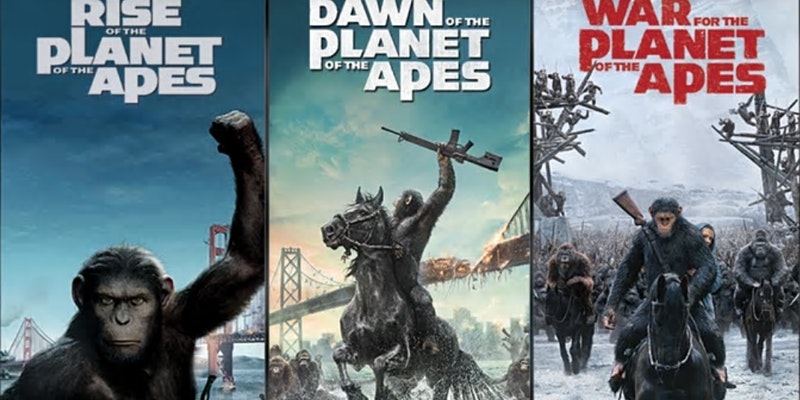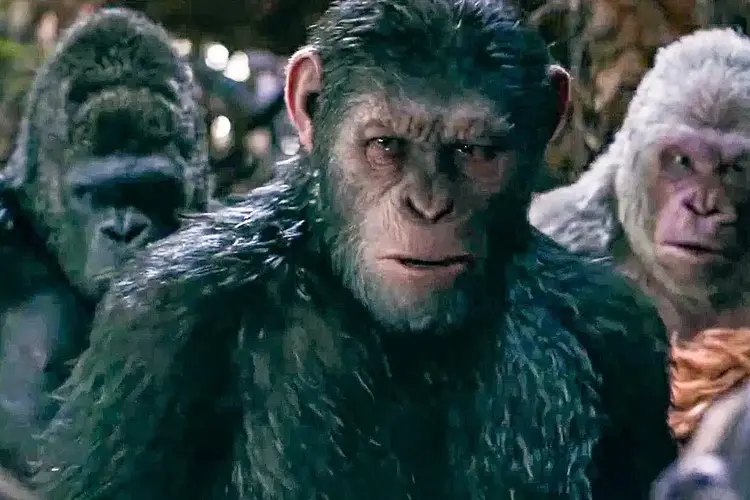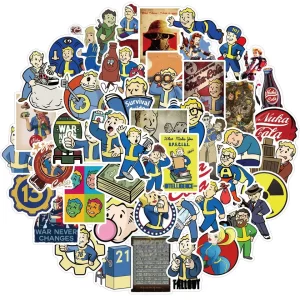Welcome to Culture of Gaming, your ultimate source for all things video games, tech, and anime. In this article, we will delve into the fascinating world of the Planet of the Apes franchise and trace its evolution throughout the years. Beginning with the first movie, aptly titled “Planet of the Apes,” this iconic series has captured the imaginations of audiences worldwide.
The original film, released back in 1968, became an instant classic, immersing viewers in a dystopian future where apes reign supreme over humans. Its thought-provoking themes and groundbreaking storytelling catapulted the franchise to immense success and laid the foundation for a remarkable journey to come.
Fast forward to 2011, and we witness the revival of the Planet of the Apes series with “Rise of the Planet of the Apes.” This reboot introduced audiences to a fresh and innovative take on the franchise, delving into the world of genetic experimentation and introducing us to the compelling character of Caesar, a highly intelligent and empathetic ape.
But what made the Planet of the Apes saga truly special was not only the success of its individual movies but also the cohesive narrative and character development spanning multiple films. Throughout this article, we will explore the rise and evolution of this franchise, journeying through the sequels “Dawn of the Planet of the Apes” and “War for the Planet of the Apes,” all leading up to the present day.
So join us as we embark on this captivating odyssey, immersing ourselves in the rich storytelling, unforgettable characters, and the enduring legacy of the Planet of the Apes franchise.
The Original: Planet of the Apes (1968) – A Classic Journey into a Dystopian Future
The original Planet of the Apes, released in 1968, stands as a timeless classic that captivated audiences with its unique blend of science fiction, social commentary, and thought-provoking storytelling. Directed by Franklin J. Schaffner and based on the novel by Pierre Boulle, the film takes viewers on a thrilling journey into a dystopian future where apes have evolved into the dominant species while humans are reduced to mute, subservient creatures.
The plot revolves around a group of astronauts who crash-land on a mysterious planet, only to discover a world turned upside down. Led by Colonel George Taylor, played brilliantly by Charlton Heston, the astronauts face a society in which apes have formed a technologically advanced civilization, while humans are seen as primitive beings. This stark inversion of power prompts Taylor to question the nature of humanity, civilization, and the fragile line that separates humans from animals.
Beyond its captivating plot, Planet of the Apes delves into profound themes, exploring issues of prejudice, power dynamics, and the tenuous nature of societal structures. The film holds a mirror to our own world, inviting reflection on the consequences of unchecked arrogance and the importance of empathy and understanding.
The cultural impact of Planet of the Apes cannot be overstated. It spawned a successful franchise that continues to evolve today, leaving an indelible mark on popular culture. The film’s ingenious makeup and prosthetic effects, created by John Chambers, garnered critical acclaim and revolutionized the art of practical effects in movies. Additionally, its twist ending, one of the most iconic in cinematic history, left audiences stunned and eager for more.
A New Era: Rise of the Planet of the Apes (2011) – A Reinvention of the Franchise
The Planet of the Apes franchise experienced a remarkable revival in 2011 with the release of “Rise of the Planet of the Apes.” This film not only breathed new life into the series but also reimagined its core concepts for a modern audience. Acting as a prequel to the original 1968 film, it cleverly bridges the gap between the original movie and the rebooted storyline.
At the heart of this reinvention is the compelling concept of genetic experimentation, exploring how scientific advancements in genetic engineering can inadvertently lead to the downfall of humanity. The key character in this story is Caesar, a chimpanzee who undergoes experimental treatment, which significantly enhances his intelligence. Portrayed by the talented Andy Serkis through motion-capture technology, Caesar becomes the driving force behind the ape rebellion that ultimately reshapes the world.
Introducing this concept of genetically enhanced apes forces viewers to question the ethical boundaries of scientific progress and the implications it holds for society. It delves into poignant themes of artificial intelligence, empathy, and the fine line that separates humans from their primate counterparts. Through Caesar’s journey, we witness the evolution of a character who learns the power of unity and compassion, eventually leading to a revolution that challenges the very fabric of human dominance.
Dawn of the Planet of the Apes (2014) – A World Divided
When it comes to the “Planet of the Apes” franchise, “Dawn of the Planet of the Apes” served as a significant turning point. This film continued the captivating story, delving deeper into the conflict between humans and apes. It explored the consequences of human actions and the resulting division between the two species.
In this installment, we witness the remarkable development of Caesar, the lead ape character. With his heightened intelligence and compassionate nature, Caesar emerges as a pivotal figure in the evolving narrative. Andy Serkis, the actor behind the motion-capture portrayal of Caesar, once again brings depth and emotion to the character, humanizing him in a way that captivates audiences.
The movie takes place ten years after the events of “Rise of the Planet of the Apes” and presents a bleak world where humans struggle to survive in a post-apocalyptic society. Meanwhile, Caesar leads a thriving ape community in the Muir Woods just outside of San Francisco. Both species are wary of each other, fueled by fear, and on the brink of war.
The film masterfully illustrates the complexities of the conflict, exploring themes of prejudice, trust, and the capacity for empathy. It challenges our notions of good and evil, blurring the lines between the two species. Through visually stunning action sequences and poignant moments of interaction, “Dawn of the Planet of the Apes” pulls viewers into a world where the struggle for dominance ignites tensions and tests the bonds of loyalty.
As Caesar grapples with his responsibilities as leader, he faces difficult choices that not only impact the lives of his fellow apes but also influence the fate of humanity. This internal conflict within Caesar amplifies the emotional depth of the film, drawing viewers deeper into the narrative. It is a testament to the exceptional storytelling and character development of the franchise.
“Dawn of the Planet of the Apes” showcases the blending of groundbreaking visual effects with a captivating storyline. The film captivates audiences, making them reflect on deeper themes while thrilling them with epic battle sequences. It perfectly sets the stage for the climactic finale of the trilogy, leaving viewers eagerly anticipating the resolution of the conflict in “War for the Planet of the Apes.”

War for the Planet of the Apes (2017) – The Climactic Battle for Freedom
War for the Planet of the Apes serves as the epic conclusion to the rebooted trilogy, bringing the conflict between humans and apes to its climactic boiling point. The movie dives deep into the war-torn world where the stakes are higher than ever before.
One of the key themes explored in this installment is loyalty. Audiences witness the unwavering commitment of Caesar, the intelligent and compassionate ape leader, towards protecting his fellow apes. Despite the betrayal and relentless pursuit by human soldiers, Caesar stands resolute in his determination to secure freedom for his species.
Survival is another predominant theme in War for the Planet of the Apes. As the war rages on, both humans and apes are confronted with their primal instincts and forced to make difficult choices to ensure their respective futures. The movie showcases the lengths individuals will go to protect their kind and the sacrifices they are willing to make in the face of adversity.
Moral choices also take center stage in this film. It highlights the complexities of the battle, blurring the lines between good and evil. The audience is challenged to question their own beliefs and to reflect on the consequences of their actions. War for the Planet of the Apes prompts us to examine the possibilities of empathy, understanding, and forgiveness, even in the midst of chaos and conflict.
With stunning visual effects and powerful performances, the movie immerses viewers in a world ravaged by war, but also driven by the hope for a better future. It showcases the evolution of the franchise, the unrivaled bond between Caesar and his ape brethren, and the profound impact their struggle has on both humans and apes.
As the third installment in the rebooted trilogy, War for the Planet of the Apes solidifies its place as a remarkable achievement in storytelling, leaving audiences captivated and emotionally invested until the very end.
The Latest Installment: Planet of the Apes: Last Frontier (2017) – A Unique Entry in the Franchise
The Planet of the Apes franchise expanded beyond the realm of traditional movies with the release of Planet of the Apes: Last Frontier in 2017. This interactive video game served as a unique entry into the franchise, offering fans a new and immersive way to experience the world of apes and humans.
The game acts as a parallel story to the events depicted in the film trilogy, bridging the gaps and providing additional depth to the overall narrative. Players are thrust into a morally-challenging journey where they control both human and ape characters and make pivotal decisions that shape the outcomes of the story.
Planet of the Apes: Last Frontier enhanced the overall storytelling experience by allowing players to step into the shoes of different characters, each with their own motivations and perspectives. The game’s interactive nature puts players on the frontlines of the conflict, forcing them to make difficult choices that test their loyalty, morality, and empathy.
What sets this game apart is its focus on narrative-driven gameplay. It emphasizes the importance of decision-making, where choices have consequences that ripple throughout the story. This creates a sense of agency and immersion, making players feel connected to the characters and the world they inhabit.
Furthermore, Last Frontier stunningly captures the visual aesthetic and atmosphere of the Planet of the Apes films. The detailed graphics, realistic motion-capture animations, and cinematic cutscenes transport players into the post-apocalyptic world, blurring the lines between film and game.
Overall, Planet of the Apes: Last Frontier stands as a testament to the franchise’s ability to expand beyond traditional mediums. By providing players with an interactive and emotionally impactful experience, the game adds a new layer of depth to the already rich storytelling of the Planet of the Apes universe.
The Future of the Franchise: Possibilities and Speculations
When it comes to the future of the Planet of the Apes franchise, there are countless possibilities on the horizon. The success and popularity of the recent trilogy have undoubtedly left fans eagerly speculating about what might come next. From potential sequels to exciting spin-offs and even the possibility of a franchise reboot, the future looks promising for this beloved series. Let’s dive into some of the speculations and ideas that fans have been buzzing about:
Potential Sequels: With the epic conclusion of War for the Planet of the Apes, it’s natural to wonder what could lie ahead for Caesar and his band of intelligent apes. Will there be future adventures that explore the aftermath of the war or delve into the next generation of apes? The possibilities are endless, and fans are excited to see how the narrative can evolve further.
Spin-Offs and Expanded Universe: The rich world of the Planet of the Apes franchise offers ample opportunities for spin-offs and expanded storytelling. Imagine exploring the origins of other ape characters, or even diving into the human resistance against ape domination. These spin-offs could provide a fresh perspective and allow for deeper exploration of the complex dynamics within this dystopian society.
Franchise Reboot: As with any successful franchise, the idea of a reboot is always a tantalizing prospect. While the recent trilogy provided a satisfying conclusion, a reboot could breathe new life into the series with a different approach or perspective. It could introduce fresh storylines, reimagine beloved characters, or even explore alternate timelines within the Planet of the Apes universe.
As fans eagerly await official announcements, it’s important to remember that these speculations remain in the realm of possibilities and imagination. The future of the Planet of the Apes franchise holds limitless potential, and whatever direction it takes, it is sure to captivate audiences and continue the legacy of this iconic series.
Conclusion: The Enduring Legacy of the Planet of the Apes Franchise
The Planet of the Apes franchise has left an indelible mark on the world of cinema, captivating audiences for over five decades. From the original classic in 1968 to the modern reboot series, the impact and evolution of this beloved franchise cannot be overstated.
Recapping the significant impact of the franchise, it started with the groundbreaking 1968 film, which offered a dystopian view of humanity’s future and raised thought-provoking questions about societal issues. The original movie paved the way for a legacy that would endure through different eras, beginning anew with the remarkable reboot in 2011.
The evolution and success of the Planet of the Apes series can be attributed to its ability to explore complex themes, demonstrate stunning visual effects, and deliver powerful performances. From the reinvention of the franchise in “Rise of the Planet of the Apes” to the climactic war in “War for the Planet of the Apes,” each installment has pushed the boundaries of storytelling and captivated audiences worldwide.
As the franchise continues to expand, with spin-offs, games, and potential future installments, the enduring legacy of the Planet of the Apes franchise remains undeniable. It has secured its position as a cinematic phenomenon that will be remembered for its thought-provoking narratives, remarkable characters, and impactful storytelling.
FAQs
What is the Planet of the Apes franchise? The Planet of the Apes franchise is a series of science fiction films that showcase a dystopian future where intelligent apes dominate over humans. It explores themes of power, evolution, and the consequences of human actions.
In what order should I watch the Planet of the Apes movies?The recommended order to watch the Planet of the Apes movies is as follows:
- The Original: Planet of the Apes (1968)
- Rise of the Planet of the Apes (2011)
- Dawn of the Planet of the Apes (2014)
- War for the Planet of the Apes (2017)
How does Rise of the Planet of the Apes connect to the original film?Rise of the Planet of the Apes serves as both a prequel and a reboot of the franchise. It explores the origins of the intelligent ape Caesar, showcasing how the events in the film eventually lead to the dystopian future depicted in the original Planet of the Apes (1968).
Is Planet of the Apes: Last Frontier a movie or a video game?Planet of the Apes: Last Frontier is an interactive video game that is set in the Planet of the Apes universe. It provides players with the opportunity to make decisions that impact the storyline and offers a unique way to engage with the franchise.
Are there any plans for future Planet of the Apes movies?While there have been no official announcements regarding future Planet of the Apes movies, there is always speculation and interest in expanding the franchise. Fans can look forward to potential sequels, spin-offs, or reboots in the future.













